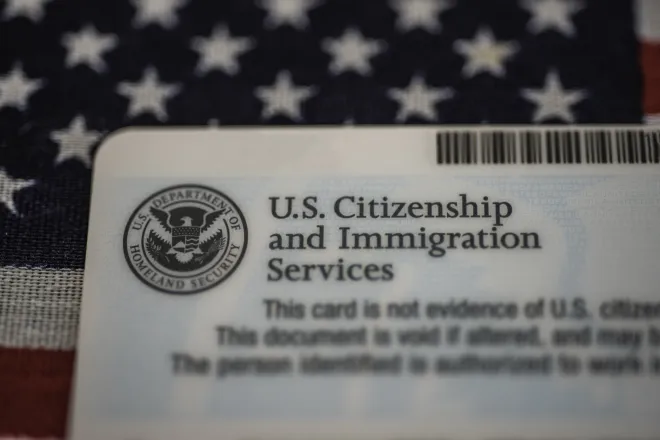
Colorado pilot program would provide cash assistance to people leaving prison
(Colorado Newsline) A Colorado bill aims to provide direct cash assistance for daily expenses to support people recently released from incarceration, with the ultimate goal of reducing recidivism.
Denver Democratic state Sens. James Coleman and Julie Gonzales, who chairs the Senate Judiciary Committee, sponsored the bill, which would create a pilot program to provide up to $3,000 for basic life expenses to people who enroll in workforce training programs after incarceration in a state facility.
If the bill becomes law, the Colorado Department of Corrections would contract with an outside organization to administer the program, providing participants with funding for eligible expenses. Participants would also need to work with reentry service providers throughout the state that already offer workforce training programs.

A formerly incarcerated person would have to enroll in the program no more than six months after their release. Eligible expenses would include housing, food, health care, hygiene products, clothes, transportation, technology and financial obligations related to legal proceedings.
The sponsors pushed off a vote after the bill’s first hearing Monday in anticipation of potential amendments that warrant further discussion. Coleman said that while no lawmakers have offered any amendments yet, he knows the high cost of the program has brought concern from some colleagues.
The estimated overall cost for the bill currently calls for an initial appropriation of up to $7.5 million and up to twice that for the second year of the program.
“We’re having some philosophical conversations just about how to make sure that members feel confident in voting to support the bill,” Coleman told Newsline. “The overall costs could go down, which means we wouldn’t be able to help as many people — but we still want to make sure that the amount that we’re providing is quality enough, so we wouldn’t decrease the amount per person, but just the amount of the overall program.”
Gate money not enough
Currently, people who leave incarceration in Colorado receive a bus pass and $100, which barely lasts a day covering the basic expenses of living. Demetrius Somerville said at the bill hearing that the day he was released from custody, he had to spend $60 on a ticket to Colorado Springs. Then he spent $40 to buy his mother and brother lunch as a thank you for picking him up.
“Just like that, the gate money was gone,” Somerville said.
Coleman noted that the Center for Employment Opportunities, which offers reentry services in Denver and around the country, has conducted a similar program that he said worked well in supporting people who came out of the criminal justice system in other states. Multiple people affiliated with CEO spoke in favor of the bill at its Monday hearing.
A study looking at the effectiveness of CEO’s Returning Citizen Stimulus program found that a majority of participants reached intended milestones and qualified for all three monthly payments totaling up to $2,750. It also helped most participants feel more financially secure after leaving incarceration, but the study said more research is warranted.

Colorado Capitol Building Denver © iStock - kuosumo
CEO regional director Valerie Greenhagen said that in 2020 her organization collaborated with others to distribute $1.5 million to 623 Coloradans leaving incarceration as part of its Returning Citizen Stimulus pilot.
A 2021 Cornell Law Review analysis also found that current gate money policies fail to provide any meaningful assistance to people leaving incarceration and need to be adjusted for inflation, among other adjustments.
Adrienne Sanchez, director of policy and legislative affairs with the Colorado Department of Corrections, testified against the bill at its Monday hearing on behalf of the department. She also talked about the CEO stimulus program, but she said it only led to temporary housing stability for about a third of its respondents and could not be credited as a reason people held down jobs.
“The department continues to seek ways to ensure that those leaving incarceration have adequate financial stability upon release,” Sanchez said. “We are requesting an increase in inmate pay across the board, and also requesting funding to bring in external partners to improve and increase workforce development opportunities available to inmates while they’re incarcerated and to expand resources available to transition those skills upon release.”
Last year, the department spent over $1.4 million to support people leaving incarceration with basic living expenses, Sanchez added.
She also said the language of the bill is too narrowly written, so that only one organization in the state could possibly meet all the requirements. While she didn’t mention an organization by name, the Center for Employment Opportunities is considered a strong contender to run the program. When contracting with an organization for a program like the proposed pilot, the state must issue a “request for proposals” and consider all applicants to determine who would best execute the program.
“This unfairly limits the department’s and participants’ ability to select the reentry provider, and a similar bill was recently vetoed in California,” Sanchez said.
Coleman said he doesn’t think the department is opposed to the concept of the bill, but rather it wants to prioritize funding that supports its interior operations.
At the hearing, Coleman cited data that found 90% of people in similar programs in other states met employment milestones, and reduced re-arrest rates by 30%.
He also estimated that caring for an incarcerated person costs the state about $50,000 a year, and the proposed pilot has the potential to save the state “$47,000 per individual that would have otherwise ended up back in prison.”
Colorado Newsline is part of States Newsroom, a network of news bureaus supported by grants and a coalition of donors as a 501c(3) public charity. Colorado Newsline maintains editorial independence. Contact Editor Quentin Young for questions: info@coloradonewsline.com. Follow Colorado Newsline on Facebook and Twitter.
















